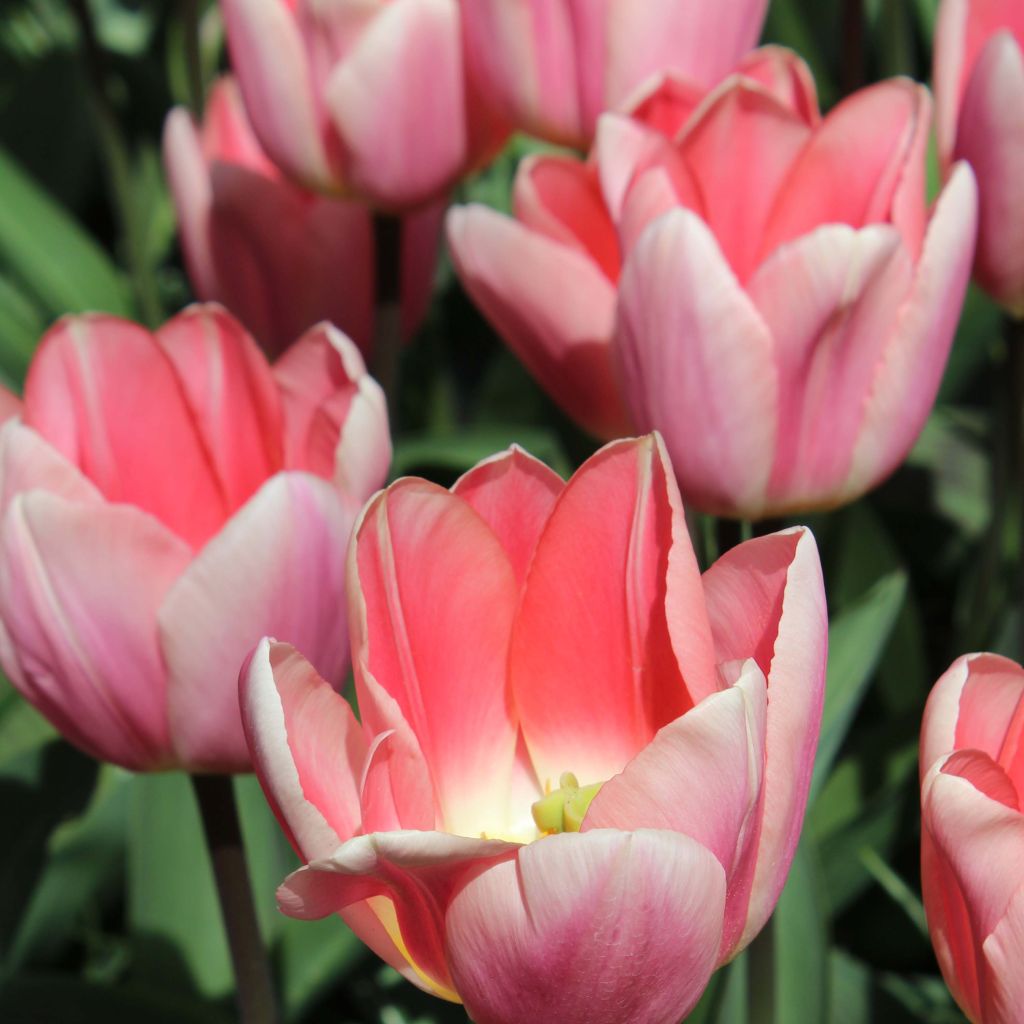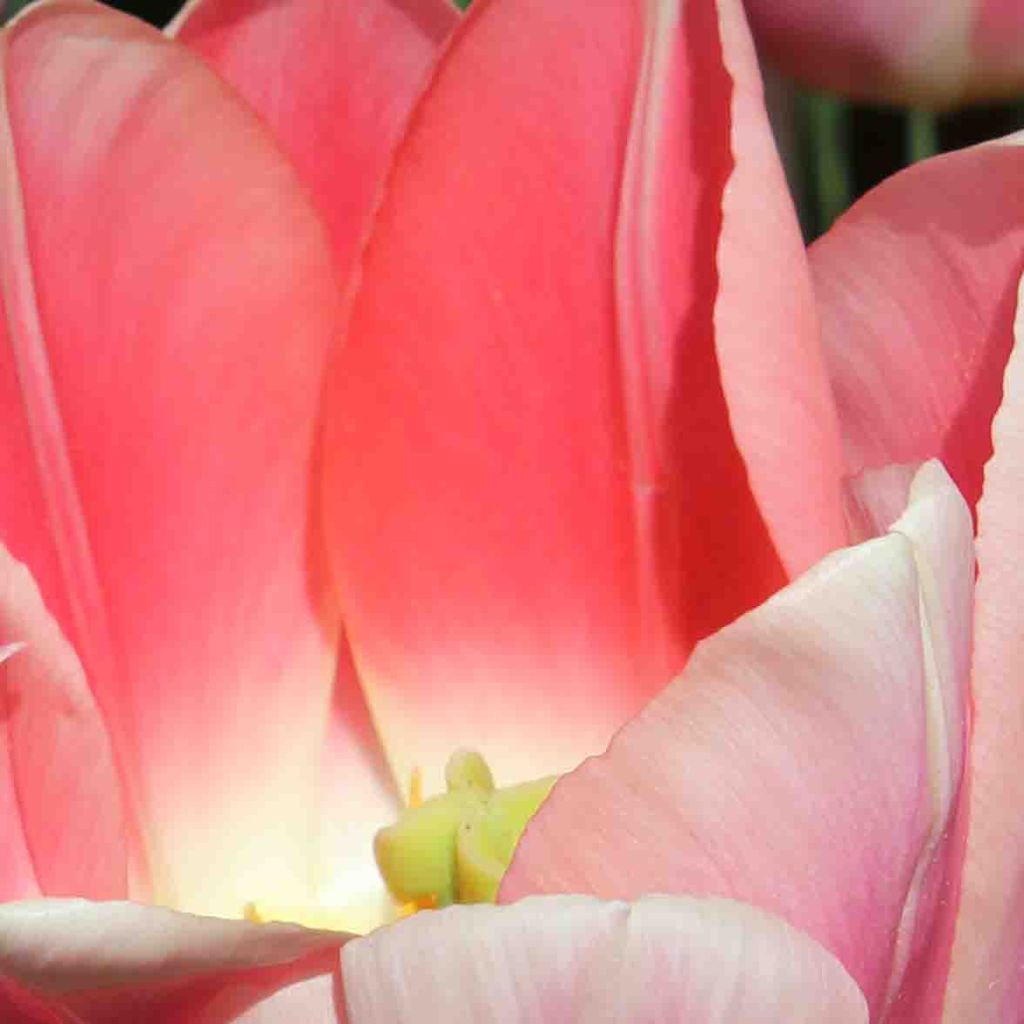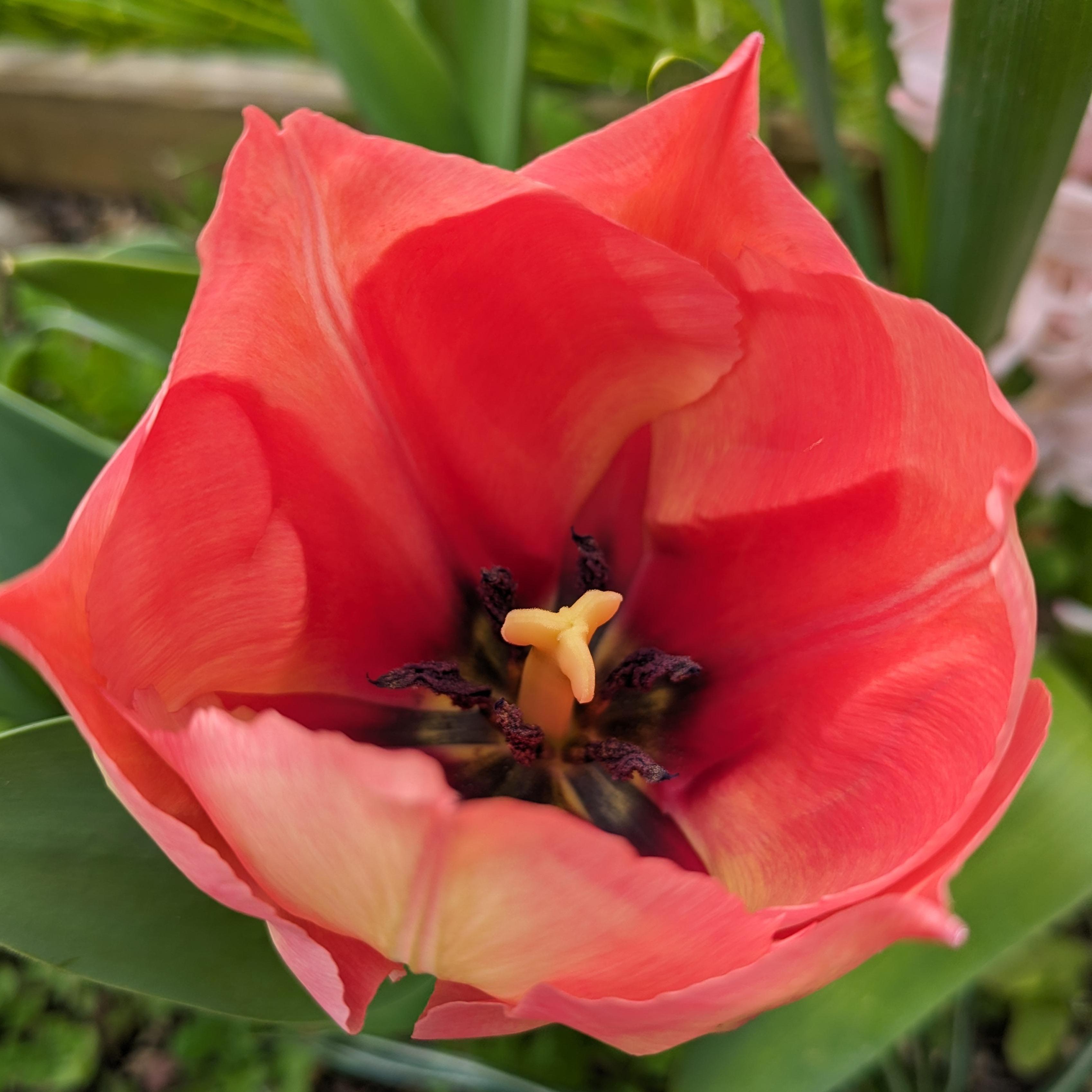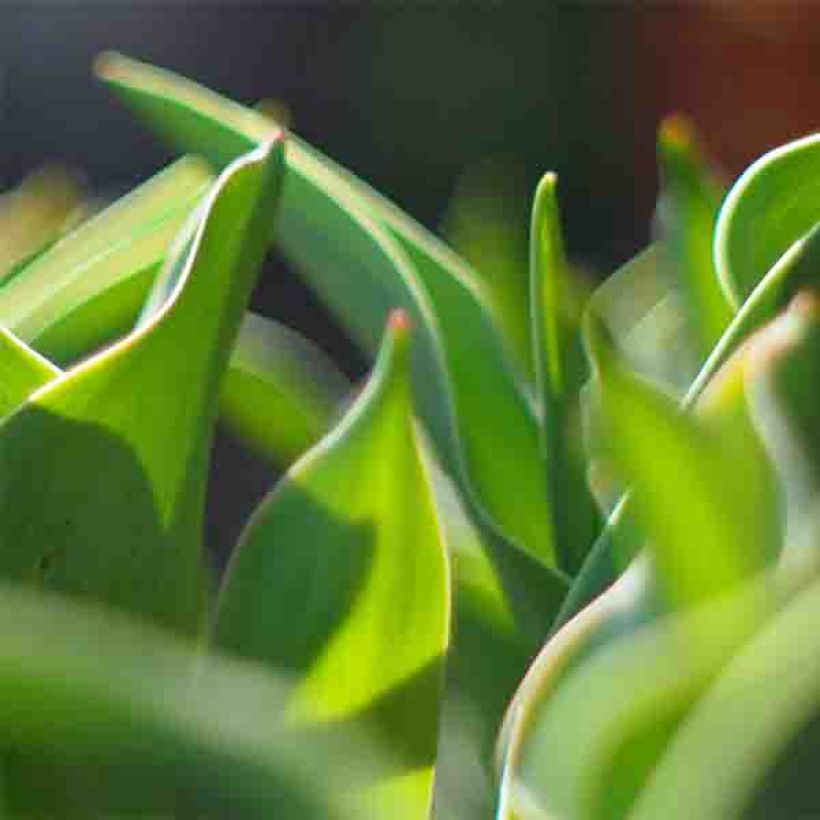

Tulipe Darwin hybride Apricot Delight


Tulipa Apricot Delight - Darwin hybrid Tulip


Tulipe Darwin hybride Apricot Delight


Tulipe Darwin hybride Apricot Delight
View more pictures
Hide images

Crystèle O.

Tulip as named and received, lovely colour!
Crystèle O. • 78 FR
Tulipa Apricot Delight - Darwin hybrid Tulip
Tulipa Darwin hybride Apricot Delight
Darwin Hybrid Tulip
Gorgeous tulips, tall and graceful, with violet-veined foliage. Revised translation: Gorgeous tulips, tall and graceful, with violet-veined foliage.
Charlyne, 15/03/2022
Special offer!
Receive a €20 voucher for any order over €90 (excluding delivery costs, credit notes, and plastic-free options)!
1- Add your favorite plants to your cart.
2- Once you have reached €90, confirm your order (you can even choose the delivery date!).
3- As soon as your order is shipped, you will receive an email containing your voucher code, valid for 3 months (90 days).
Your voucher is unique and can only be used once, for any order with a minimum value of €20, excluding delivery costs.
Can be combined with other current offers, non-divisible and non-refundable.
This plant carries a 6 months recovery warranty
More information
We guarantee the quality of our plants for a full growing cycle, and will replace at our expense any plant that fails to recover under normal climatic and planting conditions.

Would this plant suit my garden?
Set up your Plantfit profile →
Description
Apricot Delight hybrid Darwin Tulip is a new creation with exceptional qualities. It has large flowers with thick petals, brushed with pale pink, candy pink, and peach on an ivory background. Apricot Delight is a vigorous variety belonging to a new line of early-blooming Darwin hybrids with more durable flowers and strong, weather-resistant stems. It blooms in the heart of spring. Sculptural in flower beds, it is also an exceptional flower for bouquets.
Apricot Delight hybrid Darwin Tulip belongs to the Liliaceae family. Of horticultural origin, it is currently classified in Division 4, which is characterized by large single flowers with an oval shape, appearing in the middle of the season on long weather-resistant stems. Tulips in this group are the most cultivated for the cut flower trade. Originally derived from cross-breeding with botanical species like T. fosteriana, they show no signs of their wild ancestry. 'Apricot Delight' will reach a height of 45 to 55 cm (18 to 22in) when in bloom. The large flowers perched on strong stems, well above the broadly lanceolate leaves, are elongated and elegant, with a delightful delicate blend of pale pink fading towards the tips of the petals. The colour is enhanced by the slightly waxy and translucent texture of the petals. The corolla opens, revealing a brighter pink ring around a small white centre. It flowers in April-May, with each flower lasting several days before fading.
The Apricot Delight Tulip fits well in large flower beds, and bouquets. Its softness allows for combinations with tulips in white or red tones, creating a beautiful contrast. Pair it with daffodils, jonquils, hyacinths, alchemilla, Corsican hellebores, and euphorbia for stunning scenes. It can also be planted in borders, rockeries, flower beds, pots and containers. This tulip will look beautiful on balconies and terraces. It pairs well with tall perennials and is ideal for creating elegant bouquets. When placed in a vase, only use a small amount of water at the bottom! If your tulips open too quickly, you can add two to three ice cubes to the vase each day.
Regarding botanical species: tulip species are found in most of the Old World, from Western Europe to China and Japan, passing through Eastern Europe, Asia Minor, and Central Asia. Their distribution area also includes North Africa and the Indian subcontinent. The centre of diversity for the genus is in the Pamir and Hindu Kush mountains and the steppes of Kazakhstan.
There are various wild species, many of which are endangered. These are either large tulips found in cultivated fields, the most well-known being the Agen Tulip (Tulipa agenensis), or small tulips found in wooded areas or among rocks in the mountains. In cultivation, they are called "botanical tulips," and one of the most common is the wild tulip (Tulipa sylvestris), which often used to grow sheltered by vines and whose subspecies australis is known as the southern tulip.
Report an error about the product description
Tulipa Apricot Delight - Darwin hybrid Tulip in pictures






Plant habit
Flowering
Foliage
Botanical data
Tulipa
Darwin hybride
Apricot Delight
Liliaceae
Darwin Hybrid Tulip
Cultivar or hybrid
Planting and care
Plant the bulbs in autumn, from September to December, at a depth of 15 cm (6in), 10 cm (4in) apart in ordinary, slightly acidic, neutral, or slightly alkaline, loose, well-worked, and well-drained soil. Do not add manure or poorly decomposed compost to the planting soil, as this could cause the bulbs to rot. Apricot delight will thrive in soil which is moist to dry in summer in a sunny or partially shaded spot. After flowering, it is best to remove the seed heads to avoid exhausting the plant.
Planting period
Intended location
Care
-
, onOrder confirmed
Reply from on Promesse de fleurs
Haven't found what you were looking for?
Hardiness is the lowest winter temperature a plant can endure without suffering serious damage or even dying. However, hardiness is affected by location (a sheltered area, such as a patio), protection (winter cover) and soil type (hardiness is improved by well-drained soil).

Photo Sharing Terms & Conditions
In order to encourage gardeners to interact and share their experiences, Promesse de fleurs offers various media enabling content to be uploaded onto its Site - in particular via the ‘Photo sharing’ module.
The User agrees to refrain from:
- Posting any content that is illegal, prejudicial, insulting, racist, inciteful to hatred, revisionist, contrary to public decency, that infringes on privacy or on the privacy rights of third parties, in particular the publicity rights of persons and goods, intellectual property rights, or the right to privacy.
- Submitting content on behalf of a third party;
- Impersonate the identity of a third party and/or publish any personal information about a third party;
In general, the User undertakes to refrain from any unethical behaviour.
All Content (in particular text, comments, files, images, photos, videos, creative works, etc.), which may be subject to property or intellectual property rights, image or other private rights, shall remain the property of the User, subject to the limited rights granted by the terms of the licence granted by Promesse de fleurs as stated below. Users are at liberty to publish or not to publish such Content on the Site, notably via the ‘Photo Sharing’ facility, and accept that this Content shall be made public and freely accessible, notably on the Internet.
Users further acknowledge, undertake to have ,and guarantee that they hold all necessary rights and permissions to publish such material on the Site, in particular with regard to the legislation in force pertaining to any privacy, property, intellectual property, image, or contractual rights, or rights of any other nature. By publishing such Content on the Site, Users acknowledge accepting full liability as publishers of the Content within the meaning of the law, and grant Promesse de fleurs, free of charge, an inclusive, worldwide licence for the said Content for the entire duration of its publication, including all reproduction, representation, up/downloading, displaying, performing, transmission, and storage rights.
Users also grant permission for their name to be linked to the Content and accept that this link may not always be made available.
By engaging in posting material, Users consent to their Content becoming automatically accessible on the Internet, in particular on other sites and/or blogs and/or web pages of the Promesse de fleurs site, including in particular social pages and the Promesse de fleurs catalogue.
Users may secure the removal of entrusted content free of charge by issuing a simple request via our contact form.
The flowering period indicated on our website applies to countries and regions located in USDA zone 8 (France, the United Kingdom, Ireland, the Netherlands, etc.)
It will vary according to where you live:
- In zones 9 to 10 (Italy, Spain, Greece, etc.), flowering will occur about 2 to 4 weeks earlier.
- In zones 6 to 7 (Germany, Poland, Slovenia, and lower mountainous regions), flowering will be delayed by 2 to 3 weeks.
- In zone 5 (Central Europe, Scandinavia), blooming will be delayed by 3 to 5 weeks.
In temperate climates, pruning of spring-flowering shrubs (forsythia, spireas, etc.) should be done just after flowering.
Pruning of summer-flowering shrubs (Indian Lilac, Perovskia, etc.) can be done in winter or spring.
In cold regions as well as with frost-sensitive plants, avoid pruning too early when severe frosts may still occur.
The planting period indicated on our website applies to countries and regions located in USDA zone 8 (France, United Kingdom, Ireland, Netherlands).
It will vary according to where you live:
- In Mediterranean zones (Marseille, Madrid, Milan, etc.), autumn and winter are the best planting periods.
- In continental zones (Strasbourg, Munich, Vienna, etc.), delay planting by 2 to 3 weeks in spring and bring it forward by 2 to 4 weeks in autumn.
- In mountainous regions (the Alps, Pyrenees, Carpathians, etc.), it is best to plant in late spring (May-June) or late summer (August-September).
The harvesting period indicated on our website applies to countries and regions in USDA zone 8 (France, England, Ireland, the Netherlands).
In colder areas (Scandinavia, Poland, Austria...) fruit and vegetable harvests are likely to be delayed by 3-4 weeks.
In warmer areas (Italy, Spain, Greece, etc.), harvesting will probably take place earlier, depending on weather conditions.
The sowing periods indicated on our website apply to countries and regions within USDA Zone 8 (France, UK, Ireland, Netherlands).
In colder areas (Scandinavia, Poland, Austria...), delay any outdoor sowing by 3-4 weeks, or sow under glass.
In warmer climes (Italy, Spain, Greece, etc.), bring outdoor sowing forward by a few weeks.






























